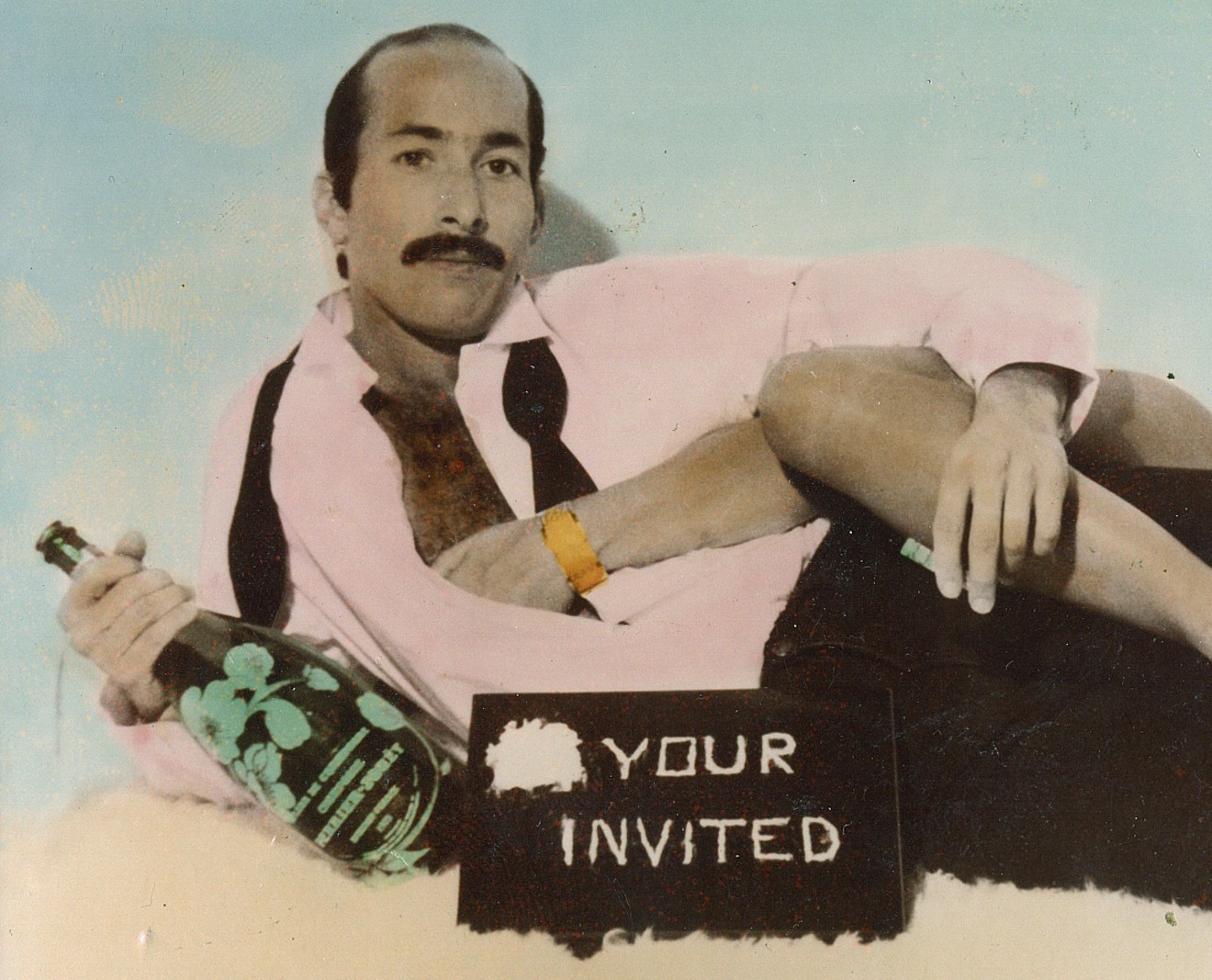Author Roben Farzad told stories of Miami’s cocaine-fueled past in his recently published Hotel Scarface: Where Cocaine Cowboys Partied and Plotted to Control Miami. The book centers on Coconut Grove’s Mutiny Hotel, Miami’s epicenter of drug dealing and unbridled debauchery in the '80s.
Now those tales will be retold on film. Stone Village Productions has picked up TV and film rights for the book and plans to create a limited series based on its content. Farzad, who was in town last week for Miami Book Fair appearances, will executive-produce along with Stone Village's Scott Steindorff and Dylan Russell.
The history of cocaine culture, glamorized in film and TV through the movie Scarface, the show Miami Vice, and more recently the Netflix series Narcos, has long legs in real life and is close to home for South Floridians. Several of the players in Farzad’s meticulously researched book still show up in Miami news stories. Pedro Rosello, who appears in the book as "Pegy," AKA Luis Mendez, was caught with two kilos of cocaine during a traffic stop in Florida City earlier this month — and that's just one story. Rosello was part of the infamous ring led by kingpins Willie Falcon and Sal Magluta and survived an assassination attempt for his role as a snitch.
Although the upswell of addiction to meth and opioids has become a devastating national health crisis, yeyo is making a comeback. Cocaine production in Colombia is staggeringly high, and last year it topped the list of drug-related deaths in Florida, the Sun Sentinel reports.
Farzad, who grew up in Miami and became fascinated with the Mutiny Hotel in his teens, spent the past 20 years researching Hotel Scarface while working as a journalist. Like Miami-based documentary filmmakers Alfred Spellman and Billy Corben, who produced the 2006 doc Cocaine Cowboys, Farzad takes a no-nonsense look at Miami’s relationship to the powerful hold the white powder had on the city's financial and social scenes.
Steindorff, founder of Stone Village Productions, is sensitive to the gritty, Miami-centric realism of the story, as well as the trickle-down effect of the drug. “It’s a bigger problem than opioids in Florida,” he says. “There’s nothing glamorous about it. So how did it happen?”
Steindorff founded Stone Village Productions in 1998 after a career in real-estate development but almost didn’t live to tell the tale. “The excess and opulence of this time is still vivid in my mind,” Steindorff says. “I almost died from overdosing on cocaine during that time, so I know the danger too — it’s what made me become sober. I’ve studied this era and these characters for almost as long as Roben, and am excited to tell this story with him.”
Now sober for 34 years, Steindorff plans to produce an adaptation of Hotel Scarface that will look at the effect of the drug on so many lives.
When Stone Village Productions traveled to Colombia to film Love in the Time of Cholera (2007), he became intrigued. “I was so fascinated by the origin, in my mind, of my problem — the origin of cocaine, which almost destroyed and ended my life.”
Steindorff is also big on exploring ways to reform the drug-rehab industry. When Farzad’s Hotel Scarface hit bookstores October 17, he saw an opportunity to tell the story and “show all sides of the devastation of cocaine.”
“There were almost a dozen offers on it, which is rare,” Steindorff says. “It had a lot of interest in Hollywood for TV and movies. I had to convince the author why I had to tell the story.”
Production on 1983's Scarface was famously booted out of Miami when local officials deemed it was giving the city bad rap; most of the film ended up being shot in Los Angeles. Steindorff will re-create the Mutiny Hotel on a soundstage but will shoot in Miami and stay true to its character. “I think people will be positively engaged in what happened there,” he says. “When they made Scarface, Miami was still in that world. That’s a world behind us now.”
Steindorff also believes it’s important to highlight the Magic City's role in the history of drug trafficking as a global problem. “People watch Narcos and say, ‘That’s crazy what happened in Colombia,’ but what about what happened here, in their own country, in Miami?” he asks.
And what happens when cocaine gets into the hands of the consumer is often a story overlooked.
“The violence at the hotel and in Miami created internal violence in millions of people’s lives,” he adds. “I really want to show that — the cocaine as it’s going to the consumer and what it did in that time period. I will definitely show the danger of that drug.”
Hotel Scarface, which has received rave reviews, is sure to keep Farzad busy in the months to come. He hopes a screen adaptation can include portions he couldn’t fit in the book. "It was so hard to pack all the stories and research into one 300-page kilo of a book," Farzad quips. "Much was left on the cutting-room floor. I’m excited for the chance to give this a screen life. Ryan Gosling should play me."
The author is also keen on working with Stone Village Productions. "Lots of people asked about the film,” he notes. "Some were serious. Some had passion but were stymied by studio execs... I think Scott and Dylan shared my passion for doing this thoughtfully.”
[
{
"name": "Air - MediumRectangle - Inline Content - Mobile Display Size",
"component": "19274298",
"insertPoint": "2",
"requiredCountToDisplay": "2"
},{
"name": "Editor Picks",
"component": "17482312",
"insertPoint": "4",
"requiredCountToDisplay": "1"
},{
"name": "Inline Links",
"component": "18711090",
"insertPoint": "8th",
"startingPoint": 8,
"requiredCountToDisplay": "7",
"maxInsertions": 25
},{
"name": "Air - MediumRectangle - Combo - Inline Content",
"component": "17482310",
"insertPoint": "8th",
"startingPoint": 8,
"requiredCountToDisplay": "7",
"maxInsertions": 25
},{
"name": "Inline Links",
"component": "18711090",
"insertPoint": "8th",
"startingPoint": 12,
"requiredCountToDisplay": "11",
"maxInsertions": 25
},{
"name": "Air - Leaderboard Tower - Combo - Inline Content",
"component": "17482313",
"insertPoint": "8th",
"startingPoint": 12,
"requiredCountToDisplay": "11",
"maxInsertions": 25
}
]













